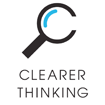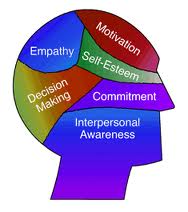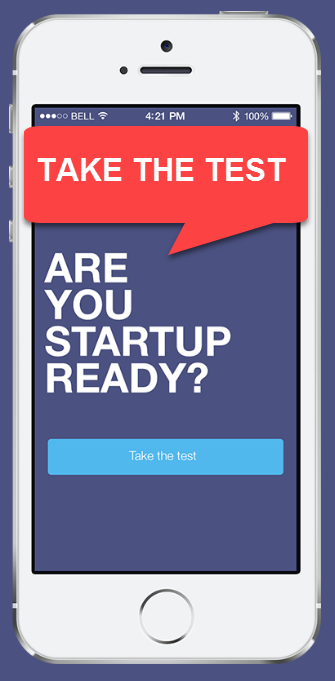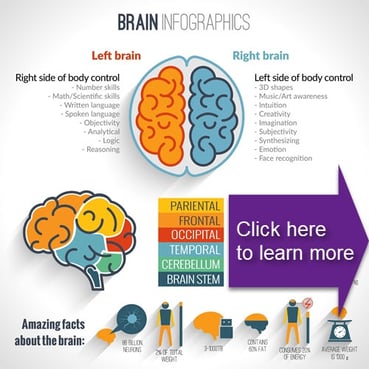If you are exceptionally brilliant, you probably realize it because unlike others who are working and studying harder, making more errors and sweating with unusual stress, you move forward with ease.
It is however, very easy to get a false sense of reality. It is possible that you are not so smart but instead associate with, work with or hang around less intelligent people. In this case, you could appear to be a genius (and they will tell you so). You will strut a little and believe their truth as your own. Since you are obviously so advanced, you won't work as hard to learn, more acquire more skills and takes risks (Which adds to experience and wisdom).
Joining a membership, club or attending networking events can trap you with a false sense of intelligence.
If you rely on your reputation for being the smartest person in the room (in regards to your industry or field), you can easily assume that all is well.
When someone walks into the room who runs circles around you and asks questions you don't have the answer to, you will sneak away for two minutes to Google the questions so that you can appear to be "in the know". It reminds you that maybe... you might not be quite as intelligent as you thought.
Anyone can be at risk of being removed from the top spot by not only the boss, but also by clients, customers, peers, mentees and those we hope to impress because of pride and social status.
It is sad to know that so many want answers to questions like the ones below simply because they want stay off the bottom - and 'beat' the person next to them.
- How intelligent am I?
- Is there a test? (Like in school)
- How intelligent do others believe me to be?
- How smart to do I have to be?
- Should I consider myself "the expert"?
- What do others believe?
- Which is most important? Intelligence or wisdom?
- Is my I.Q. ?
- How do I improve my intelligence.
- How can I prove to others that I have intelligence and wisdom.
Before you take the test, what about your brain function?
Improving brain function may be more important than studying. If you are having challenges, it may be related to mental health, and for good reason. Conditions such as Alzheimers, anxiety and Schizophrenia are just a few of the mental health disorders to consider. There are some interesting factoids about improving brain function here. The infographics should give you an 'ah-ha' moment or two.
Get ready to test your intelligence - Here are quizzes and tests to take that will help you dig deeper into who you are, and your personality:
You might rely on a simple intelligence test such as this one.

It seems a little silly on the surface and yet the questions do cause you to pause and reflect a moment before you answer. If the test results say "above average intelligence", you probably won't put much stock in the rating and move on.
You can go to a higher authority intelligence test:

Standardized intelligence testing has been called one of psychology's greatest successes. It is certainly one of the field's most persistent and widely used inventions. Since Alfred Binet first used a standardized test to identify learning-impaired Parisian children in the early 1900s, it has become one of the primary tools for identifying children with mental retardation and learning disabilities. It has helped the U.S. military place its new recruits in positions that suit their skills and abilities. Since the administration of the original Scholastic Aptitude Test (SAT)--adapted in 1926 from an intelligence test developed for the U.S. Army during World War I--it has spawned a variety of aptitude and achievement tests that shape the educational choices of millions of students each year.
This dry dialogue is great for scholars but could quickly become uninteresting. It is not relevant enough for a leader, adviser, teacher, entrepreneur, boss or manager.
In fact, traditional IQ tests miss some of the most important aspects of real-world decision making. It is possible to test high in IQ yet to suffer from the logical-thought defect known as dysrationalia.
Dysrationalia is defined as the inability to think and behave rationally despite adequate intelligence. Dysrationalia can be a resource to explain why smart people fall for Ponzi schemes and other fraudulent encounters. The concept of dysrationalia was first proposed by psychologist Keith Stanovich in the early 1990s.
One cause of dysrationalia is that people tend to be cognitive misers, meaning that they take the easy way out when trying to solve problems, often leading to solutions that are wrong.
Question: How long do you work on a difficult problem where no apparent solution is obvious? Do you take the easy way out?
Another cause of dysrationalia is the mindware gap, which occurs when people lack the specific knowledge, rules and strategies needed to think rationally.
Mindware (a term invented by cognitive scientist David Perkins) is defined as rules, procedures and other forms of knowledge that are stored in memory and can be retrieved in order to make decisions and solve problems (Stanovich, 2009).

A test to know your personality takes very little time is free. You can take the fun quiz that will teach you a lot about your brain; it'll tell you which of 16 reasoning styles you use, where your strengths lie, and what you can do to improve your skills. It will also tell you what your overall level of rationality is. Take it here >

Another test that will help you know your personality takes very little time and is remarkably accurate. Take the Personality Test here >

The “Who Am I” Visual DNA test is also one of the most fun and useful personality quizzes you will probably use. Formatted less like question-and-answer and more like a “pick a photo that you think is pretty” system, it’ll show how your character defines your outlook and approach to life. Take the VisualDNA quiz here >

Some will tell you that emotional intelligence is just as important as IQ both in and out of the office.
What is emotional intelligence? EQ reflects a person's ability to empathize with others: identify, evaluate, control and express emotions ones own emotions; perceive, and assess others' emotions; use emotions to facilitate thinking, understand emotional meanings. This test will help you understand what you should work on to improve your EQ. Take the emotional intelligence test here >

"There's an app for that!" - remains true. Calculate your level of startup-ness with an app.
If you think you're startup material, you can take this specially prepared (and they say totally accurate), not-at-all whacky test to calculate how close you are to the perfect founder's profile. This can be done while you are on the run on your smartphone.

If you have started a company and nothing is going well, it's not too late. This test may not be an "intelligence test" but you will be smarter for having taken it.
The REAL TEST
The real test may be the one you take every time you connect, converse and serve someone. They are silently judging not just your skills and expertise, but also your character. You can be the smartest person in the room but if someone believes you are not sincere or having a trick up your sleeve, you will flunk and never see a score.
Caution:
It appears the smarter someone believes him or herself to be, the less questions they ask. Which then could influence listening which then leads to being out of touch. Which then leaves very smart people talking about and inventing things no one cares about. Asking more questions is a good habit to have - no matter how high your intelligence score might be.
Which test did you score well on?
